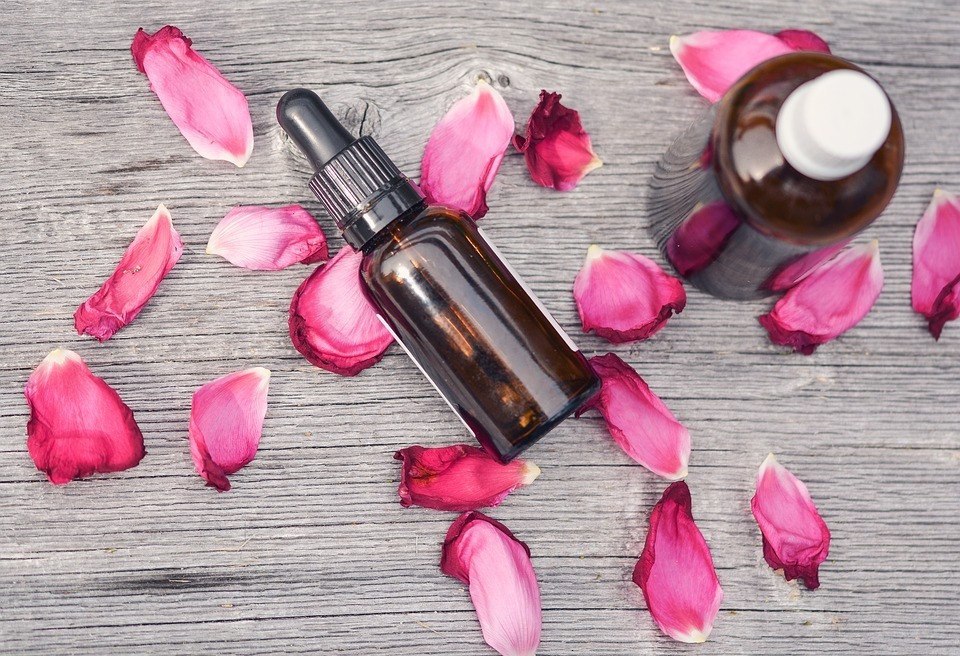Essential oils are natural products extracted from raw plants. The oils capture the plant’s own “essence.” What gives every essential oil its distinctive essence are the unique aromatic compounds produced by the plants.
These oils usually have a more pungent smell than the plants they’re extracted from and have higher active ingredients, affected by the particular amount of plant matter needed to produce essential oil.
Essential oils are extracts of different— possibly beneficial— plants. A lot of these plants may contain likely beneficial compounds. However, there is no sufficient evidence to recommend using them as a cure or treatment for ailments.
Ways to Extract Essential Oils
Various manufacturing processes can extract beneficial compounds from plants. Manufacturers obtain essential oils through different methods of extraction.
The different ways of extracting essential oils include:
1. Water or Steam Distillation
This method passes hot steam or water over the plants, pulling away the essential compounds from the plant matter.
2. Cold Pressing
This process involves mechanically squeezing or pressing plant matter, causing it to release essential oils or juices. One such example is smelling the fresh fragrance of lemon after zesting its peel or squeezing it.
After extracting the plant matter’s active compounds, select manufacturers produce more products from an equal amount of essential oil by adding the compounds to carrier oil. With this, the products are turned into a mixture and are no longer pure essential oils.
Uses of Essential Oils
Essential oils are manufactured to produce a variety of products. The makeup and cosmetic industry use essential oils to add fragrance to body creams and washes, create perfumes, and as some beauty products‘ source of natural antioxidants. You can also smell fresh with great cologne options such as the luxury brands Coty, Chanel and Burberry.
A lot of natural medicine practitioners, like the aromatherapist, utilize essential oils. In aromatherapy, essential oils are diffused into the air.
Aromatherapists assume that breathing in oils might make them enter the bloodstream and lungs, making the body benefit from some of the potentially beneficial compounds.
The usage of a mentholated vapor rub for clearing the sinuses is also a method of aromatherapy. A 2013 study from studyTrusted Source notes that this way of inhaling menthol reduces shortness of breath and feelings of congestion.
Combining essential oils with a carrier oil and massaging them onto the skin may also work as well as inhaling them when it comes to providing active compounds to the body.
It’s not advisable to apply essential oils directly to your skin without diluting them first unless it’s under the personal supervision of a healthcare professional.
It’s also harmful to consume essential oils as they are highly concentrated and can irritate the internal body’s sensitive cells.
In some unusual cases, some people might be asked to take oral capsules with essential oils. However, you should only do this if you’re under the direct supervision of a healthcare professional.
Although, usually, you should not place any regular commercial essential oils anywhere nearby your eyes, ear, mouth, vagina, anus, or in any other areas where they can enter your body.
Well-Known Types of Essential Oils
There are currently more than 90 essential oil types, each having a unique scent and possible health gains.
Here are the 10 of the most popular essential oils and the health benefits linked to them:
- Lavender: for relieving stress
- Peppermint: for aiding digestion and boosting energy
- Lemon: for assisting digestion, headaches, mood, etc.
- Rose: for reducing anxiety and improving moods
- Sandalwood: for calming down nerves and aiding with focus
- Chamomile: for relaxation and mood improvement
- Jasmine: for helping with childbirth, libido, and depression
- Tea Tree: for boosting immunity and fighting infections
- Ylang-Ylang: for treating skin conditions, headaches, and nausea
- Bergamot: for improving skin conditions such as eczema and reducing stress
Are Essential Oils Effective?
Despite their popularity and extensive use, experts have found only a little about the essential oils’ ability to cure specific health conditions. However, some oils may be effective, depending on what you’re using them for.
With a wide range of plants containing potentially valuable compounds, manufacturers have created plenty of essential oil products.
The compounds in these essential oils may have some positive health effects on the body, which include:
- migraines and headaches
- constipation
- insomnia and sleep
- depression
- cold sores
- antibiotic and antimicrobial
- sinus infections
- reducing inflammation
- sore muscles
- stress and anxiety
Other Uses of Essential Oils
Other than aromatherapy, essential oils still have different uses.
A lot of people use them to freshen up their homes and things such as laundry. They’re also used to bring a natural scent to high-quality natural products and homemade cosmetics.
Also, studies suggested that the oils can provide an environmentally friendly and safe alternative to human-made mosquito repellents like the DEET.
However, there have been mixed results regarding the essential oils’ effectiveness.
Side Effects of Essential Oils
Essential oils are thought not to cause any side effects just because they’re natural products. This is false, however. The probable side effects that essential oils may bring include:
- headaches
- burning and irritation
- allergic reactions
- asthma attacks
- rashes

